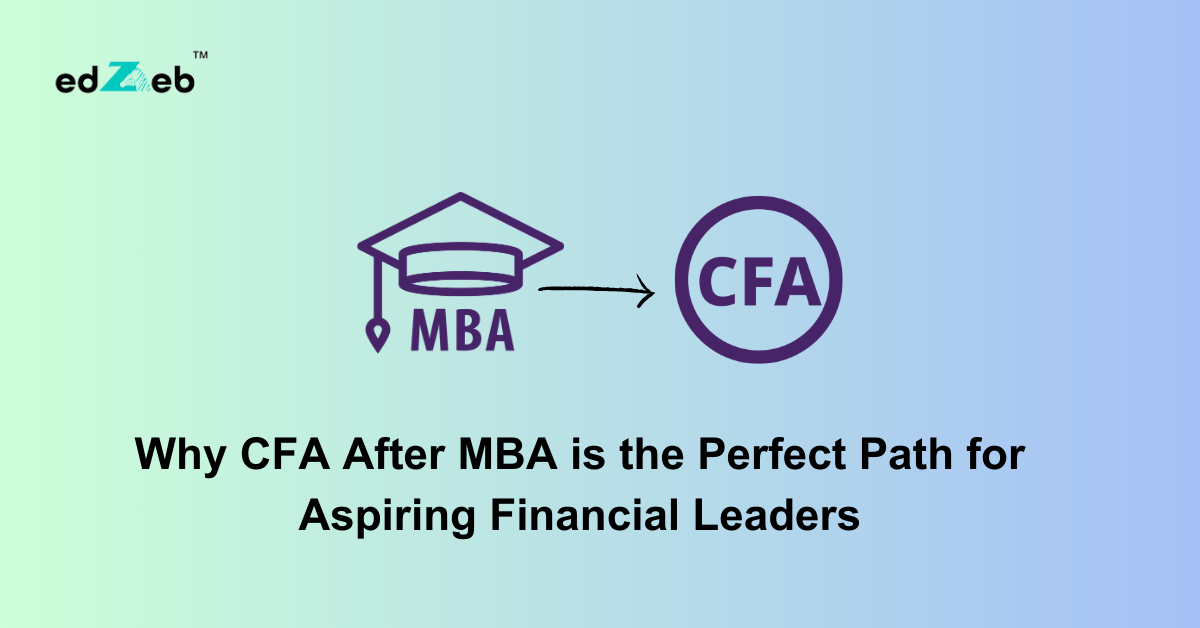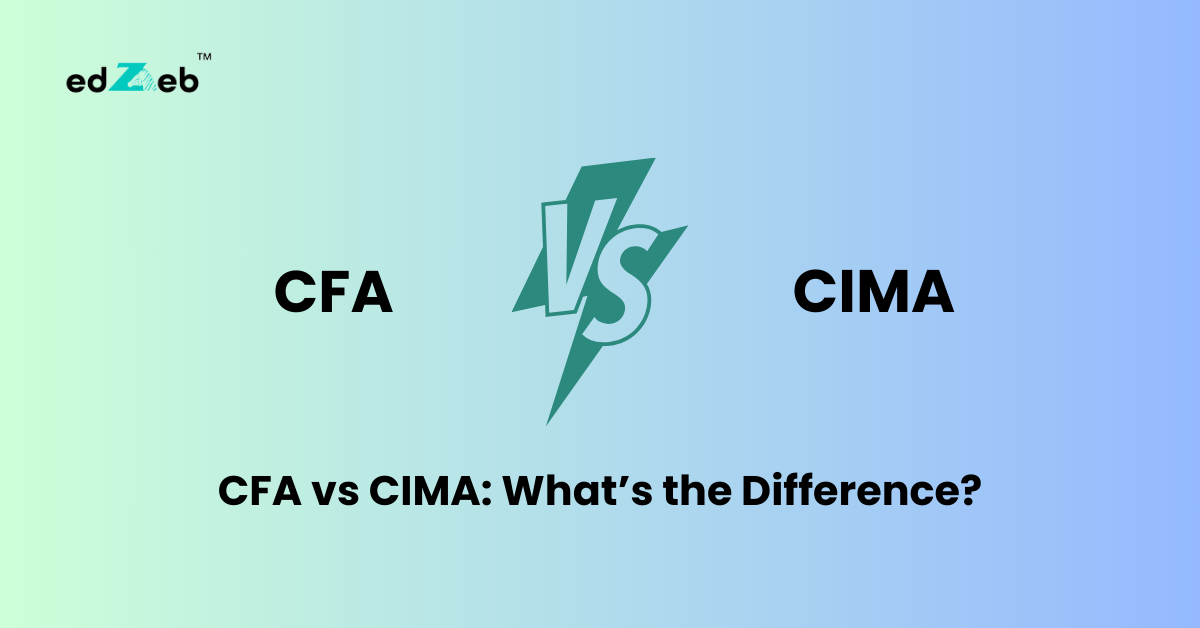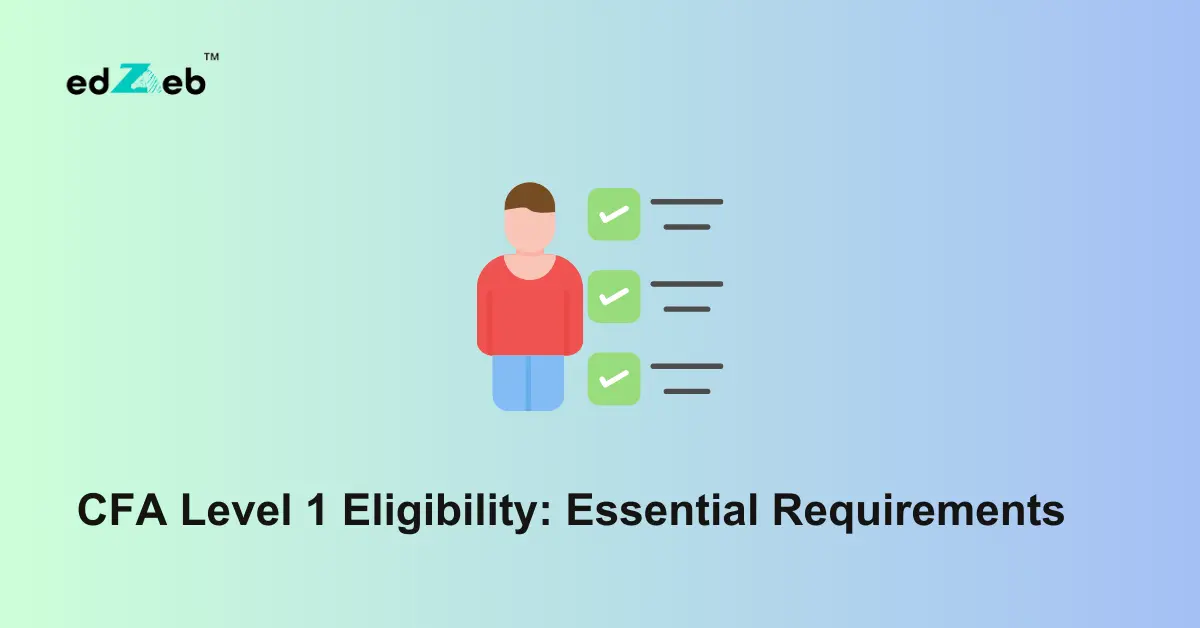
A CFA After MBA can give you a competitive edge in the finance industry, where the stakes are high and competition is fierce. Fortune truly favors the prepared mind.
So, with an MBA, you already have a solid foundation in business management and strategy, but What if you could go further? What if you could wield a sharper edge, carve a unique niche, and stand out in a sea of MBA graduates?
If you want to do that, pursuing CFA after MBA is a better idea. CFA Course does not just complement your MBA but adds value to it. It sets you apart in the global financial arena.
Table of Contents:
Synergy of CFA and MBA
The combination Chartered Financial Analyst credential is a prestigious qualification offered by the CFA Institute and the Master of Business Administration offers a complementary skill set to professionals. The convergence of both qualifications helps you gain a deep understanding of financial markets.
The CFA program focuses on investment management, financial analysis, and portfolio management. On the other hand, An MBA degree lays a broad foundation in business management. Therefore, MBA graduates who pursue CFA have an opportunity to improve their analytical skills, combining strategic commercial acumen with technical ability.
What To Do After MBA Finance
Gaining a well-deserved master’s degree and that too in finance opens up a world of job opportunities to distract you from pursuing any further educational certification. In the world of finance, holding a master’s degree in hand may not suffice. If you are contemplating what to do after MBA Finance, consider combining CFA and MBA to truly capitalize on the most promising job opportunities and excel in the finance market. The synergy of a CFA and MBA not only enhances your financial expertise but also positions you as a standout candidate for high-profile roles, enabling you to navigate and thrive in the dynamic finance industry.
Is CFA and MBA a Good Combination?
CFA after MBA is a powerful combination for a career in finance. It equips professionals with much-needed industry knowledge and technical skills to build a successful career in finance. The duo CFA after MBA in finance offers a perfect blend of broad business management skills and deep financial expertise. Thus, together, they enhance career prospects, open up diverse job opportunities, and equip professionals with a unique skill set that is highly valued in the finance industry.
CFA Course Duration after MBA
The CFA course duration after MBA will take 2 to 5 years to complete as each part of the CFA curriculum will be prepared in 6 to 9 months. CFA institute also demands a gap of a minimum of six months between exams. Moreover, to gain a CFA credential candidates must complete their 4000 hours of work experience. So, Chartered Financial Analyst duration after MBA will be more than 3 years easily but if any candidate may pass all their CFA exams in the first attempt then there is a chance to complete the CFA course in less than 2 years.
If you want to reduce your CFA duration after MBA then you must look out for an institute that provides CFA coaching within their MBA course. So, you will be able to earn a certification along with your degree in less time but only on the condition that you should double your effort and dedication towards study.
Benefits Of Pursuing CFA After MBA
CFA after MBA offers several advantages to professionals who want to build their careers in the finance industry, including:

Broad Career Prospects
A dual qualification always qualifies a professional equipped with management and financial skills for various job opportunities.
Leadership Positions
Professionals who did CFA after MBA navigate entry-level roles to the highest executive positions within organizations. This CFA after MBA combination empowers them to excel across all levels of the corporate hierarchy to drive significant impact and leadership in their careers.
Global Opportunities
CFA after MBA opens doors for international career opportunities as CFA is a universally recognized professional designation offered by the CFA Institute.
Increased Earning Potential
With better job opportunities come better salaries, but it completely depends on your location and designation, and which industry you are serving in.
Unique Skill Set
MBA is a traditional course of study offering a broad study of business management, but CFA offers a deep understanding of financial management and financial investment as well. So, this unique skill set helps you get a competitive edge over your peers.
Ethical Standards
CFA charterholders adhere to a mandatory Code of Ethics and Standards of Professional Conduct to ensure that they uphold the highest levels of integrity, professionalism, and transparency in their financial practices.
Expanded Professional Network
The CFA provides access to a global network of finance professionals through the CFA Institute and local societies. This network will improve your valuable connections, mentorship, and job opportunities.
Strong Analytical Skills
The professionals learn by practicing rigorously so they are experts in quantitive and analytical skills to make data-driven decisions and solve complex financial problems.
Industry Centric Knowledge
CFA provides an understanding of capital markets and industry-centric knowledge. So doing CFA after MBA finance your ability to apply advanced financial principles to real-world scenarios.
Increased Job Security
CFA provides greater job security by making you more valuable and versatile in your role, especially in finance-related positions.
Adaptability in a Changing Market
The dynamic duo helps you navigate jobs across different industries like finance, investment banking, portfolio management, consulting, and corporate strategy.
Job Profiles for CFA after MBA
Several job roles are available for CFA professionals who already possess an MBA degree, including
Financial Analyst
Financial Analyst Tracks a company’s financial situation and the economic environment to help the company make commercial decisions.
Credit analyst or manager
A job in commercial banking, where professionals work with businesses to provide financial services like loans, credit lines, and cash management.
Risk manager
Analyzes, manages, and controls risk-related elements of an organization, including gathering risk data, managing liability programs, and mitigating risks.
Management consultant
Helps companies with organizational management, including solving managerial issues, improving business performance, and maximizing growth.
Wealth management professional
Provides financial advice to clients on investment opportunities and wealth preservation strategies.
Some of the other job roles available to professionals who have done CFA after MBA finance are Auditor, Equity researcher, Corporate Controller, Corporate financial analyst, Cash manager, and more. Remember if you wish to work in MNCs located in India, employers prefer candidates with CFA after MBA but if you wish to work outside India, then CFA solely will solve the purpose.
Reasons Why CFA After MBA Finance Is A Better Idea
Doing CFA after MBA in Finance opens a world of opportunities. It provides a unique blend of strategic management skills and specialized financial expertise that can push your career to new heights.
- You learn to apply the theoretical knowledge gained from an MBA to real-world situations.
- CFA program provides an in-depth understanding of finance concepts than an MBA program.
- Professionals with both an MBA and a CFA charter earn higher salaries than those with only one of these qualifications.
- The CFA program focuses on analytical skills and quantitative methods, complementing the leadership development found in MBA programs.
- Holding an MBA and CFA charter shows your strong commitment and enhances your credibility among potential employers.
- CFA provides access to great professional networks, which can be further enhanced by pursuing both qualifications.
Conclusion
In the competitive era, where every move of yours matters you need to stand out in the crowd to seek employers’ attention, so doing CFA after MBA can be a game changer for you. MBA lays the foundation for business management and CFA adds a specialized layer of expertise in investment and financial analysis. Together, they offer various benefits including global opportunities with higher salary potential and increased job security. Set yourself apart as a well-rounded finance professional who is ready to take on the challenges of a dynamic financial landscape.
FAQ’s
Is CFA worth it in India?
Yes, CFA is a valuable certification that helps you stand out in the competitive world of finance by demonstrating your deep knowledge of investment analysis, portfolio management, and ethical standards.
What are the exemptions in CFA after MBA?
Unfortunately, there are no such exemptions provided by the CFA Institute but yes CFA after an MBA, may help you leverage your existing knowledge, enhance your financial acumen, and accelerate your career growth.
Is MBA finance equivalent to CFA?
No, MBA finance is not at all equivalent to CFA as MBA provides a broader aspect but CFA provides deeper coverage of investment management.
Can I do CFA and MBA at the same time?
Yes, you can but you need to find out recognized educational institutes providing CFA coaching within their MBA program, so yes CFA and MBA can be done at the same time reducing your effort and time.
Is CFA harder than MBA?
Yes, it can be said so as CFA equips you with a deeper specialization in investment analysis, asset valuation, and portfolio management whereas MBA has a broader approach to cover the basics of financial aspects.









